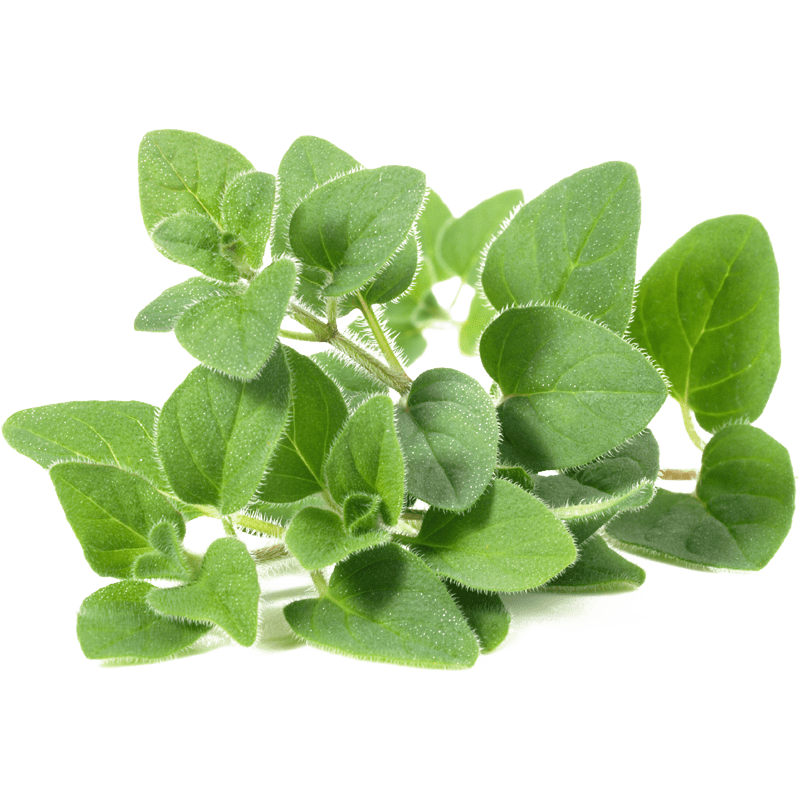Oregano
Origanum vulgare L. – Lamiaceae

Oregano is a perennial, bushy plant. It is widely used as a spice in cooking, but due to its rich effects, it has also found wide application in medicine. It grows in the mountainous regions of southern Turkey. It has a very characteristic smell and a bitter taste, and the dried, aerial part of the plant or etharxo oil is used as a medicinal part of the plant. Oregano contains 0.5-1.2% of essential oil, which includes the following active principles: carvacol, gamma-terpene, p-cymene, alpha-pinem, myrcene, thymol, estragole, alpha-terpene, eugenol… In addition of essential oil, oregano is also rich in flavonoids, rosmarinic acid, phenolic esters, and tannins.
The EMA (European Medicines Agency) prescribes two official indications where oregano can be used, namely:
1. The indication is that oregano is used as a traditional herbal remedy for the symptomatic relief of mild spasms and flatulence of the gastrointestinal tract, it exhibits spasmolytic action (relaxes the smooth muscles of the digestive tract).
2. The indication is that oregano is used as a traditional herbal medicine to alleviate the unpleasant symptoms of irritated and damaged skin around the nostrils.

Therefore, oregano can be used as a traditional herbal remedy for the treatment of cough (expectorant – facilitates expectoration) and as a means of reducing inflammation of the bronchial mucosa. However, many studies have confirmed antimicrobial (antifungal and antibacterial), anti-inflammatory, antioxidant, hypoglycemic and antimutagenic effects. One study proved that oregano exhibits a synergistic effect with antimycotics (medicines against fungi), such as nystatin and fluconazole, thus contributing to the high efficiency of therapy when it comes to the treatment of fungal infections caused by Candida spp.
There are statements for oregano, which are currently in on-hold status, and were approved by EFSA (European Food Safety Authority), which say that this plant contributes to the health of the immune, cardiovascular and respiratory systems, contributes to the health of the liver and bile, and helps and digestion, but also stimulates mental activity. The use of oregano-based products is recommended for people over 18 years of age, and as for unwanted effects, it is necessary to avoid contact with the eyes, as it can potentially cause irritation. Regarding drug interactions, no interactions have been reported or documented so far, so oregano is considered safe in combination with pharmacological therapy. Safety during pregnancy and breastfeeding has not been established, so due to the lack of evidence, the use of oregano during pregnancy and breastfeeding is not recommended.
References
- Antimicrobial activity of essential oils of cultivated oregano (Origanum vulgare), sage (Salvia officinalis), and thyme (Thymus vulgaris) against clinical isolates of Escherichia coli, Klebsiella oxytoca, and Klebsiella pneumoniae
- European Union herbal monograph on Origanum majorana L., herba
- Questions On Hold Botanical Claims Excel
- Nanoencapsulation of Origanum vulgare essential oil into liposomes with anticancer potential
- Hypoglycemic activity of Origanum vulgare L. and its main chemical constituents identified with HPLC-ESI-QTOF-MS
- Origanum vulgare L. essential oil inhibits virulence patterns of Candida spp. and potentiates the effects of fluconazole and nystatin in vitro
